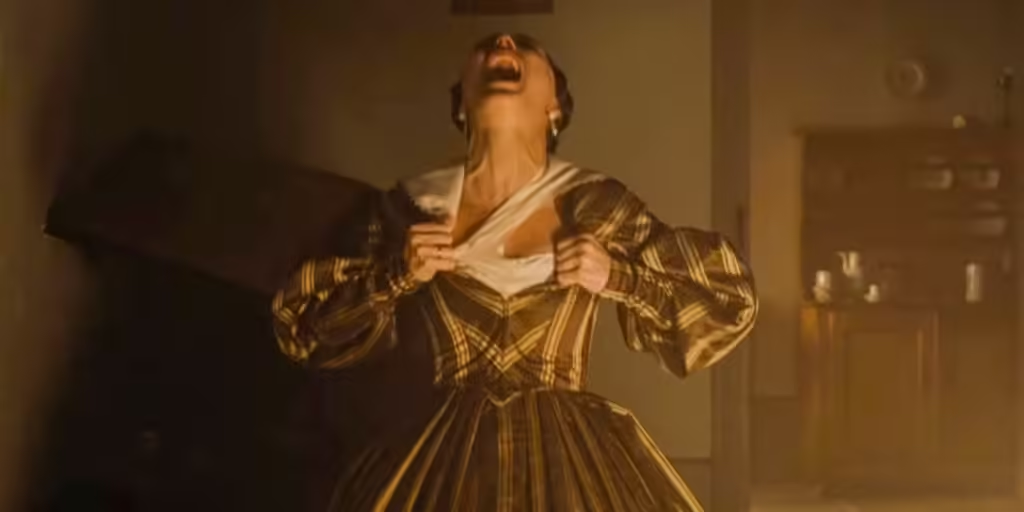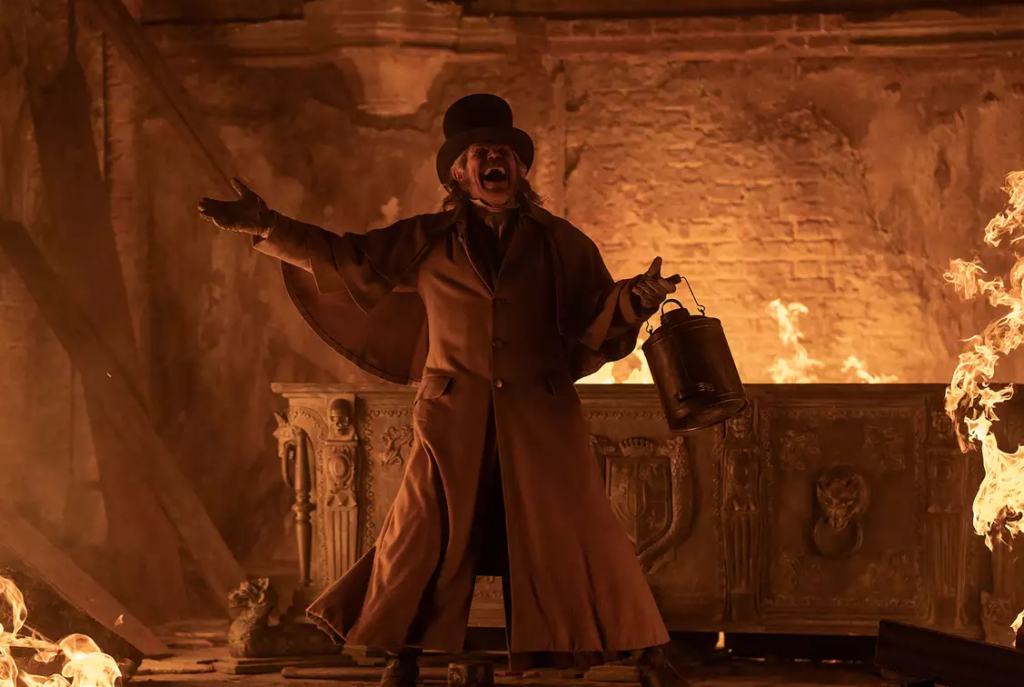
Have you ever sat at the end of a film, basking in its greatness? You’ve just spent 2 hours and 12 minutes completely immersed, shutting out everything around you, and you feel like you’ve been transported to another time in history. That’s exactly how Robert Eggers’ Nosferatu made me feel. Since its announcement, I’ve been eagerly anticipating this film, and to say I was blown away would be an understatement.
If you’re not familiar with the story, Nosferatu is based on Bram Stoker’s Dracula, which was originally adapted into a 1922 silent film. Now, nearly a century later, we get a modern retelling of a story we’ve seen time and again—but never quite like this.
The film opens by immersing us in a dark, gothic world, offering a glimpse of the horrors to come. It follows Thomas Hutter (Nicholas Hoult) and his wife Ellen (Lily-Rose Depp), newlyweds about to have their lives irrevocably altered by a sinister force beyond their comprehension. Thomas is sent by his employer to help Count Orlok (Bill Skarsgård) purchase a property in Thomas’ hometown in Germany and accompany him back from Transylvania. But Orlok’s reasons for this seemingly innocent request are far darker than they first appear.

We follow Thomas through the Carpathians to Orlok’s castle, where we’re plunged into a world of shadows, lit only by candlelight and moonlight. The haunting beauty of the gothic landscape is captured in spectacular fashion by Eggers and cinematographer Jarin Blaschke, whose work transports you to another time entirely. Hoult delivers one of his finest performances to date, portraying a man who begins as the steadfast hero, determined to protect his family, only to slowly unravel into a shadow of himself, consumed by fear and sickness. Meanwhile, back home, Ellen begins to sense that her nightmares are more than just dreams—that Thomas is in grave danger, and that her fate may be tied to the Count in ways she cannot yet understand.
From the moment Thomas steps into Orlok’s castle, a suffocating darkness takes hold. Bill Skarsgård is utterly unrecognizable, not just in his appearance but in how he carries himself. Orlok is pure evil, with any trace of Skarsgård’s humanity stripped away. His performance is terrifying, and you can feel the dread every time he appears on screen. It’s a masterclass in transformation, and don’t even get me started on how incredible and haunting his voice is.
While Thomas is away, Ellen’s disturbing visions grow stronger, hinting at a deeper connection to Orlok. Their friends, Friedrich (Aaron Taylor-Johnson) and Anna Harding (Emma Corrin), take Ellen in, and both actors shine in their roles. As the horror unfolds, their pain and terror become palpable. One particular sequence in their house left me shaken to my core. The time spent here is also where Lily-Rose Depp truly comes into her own.

Ellen loves her husband more than anything, but a longing for Orlok has plagued her for years, filling her with erotic visions of a man she doesn’t know. These visions stir doubts about her stability and unfulfilled desires. Depp’s performance is nothing short of mesmerizing. She’s consumed by fear, desire, and horror, communicating it all through subtle shifts in her facial expressions and body language. It’s easily one of the best performances of 2024—and perhaps one of the best I’ve ever seen. Depp brings an innocence to the role that makes her transformation even more chilling. While Anya Taylor-Joy was initially considered for the part, I can’t imagine anyone else embodying it as perfectly as Depp does. She completely captivates, as if she was born for this role.
As the story progresses, we’re introduced to several other characters, but none stand out more than Professor Albin Eberhart von Franz (Willem Dafoe). He serves as the film’s Van Helsing, albeit with unconventional methods. Dafoe’s performance is a delight, bringing much-needed levity to the otherwise tense atmosphere. He’s recruited by Dr. Wilhelm Sievers (Ralph Ineson), who realizes that what Ellen is experiencing cannot be explained by traditional means. With the town on the brink of collapse, their desperate search for answers brings the film to a boiling point.

From start to finish, Nosferatu had me utterly captivated. It transported me to another world, and I can confidently say it’s my favorite of Eggers’ work. As a fan of The Witch and The Lighthouse, this film feels like the perfect culmination of his cinematic vision. The cinematography and score are hauntingly beautiful and includes one of my favorite shots of all time with Orloks hand reaching out over the poor town of Wisborg. The costume design is exceptional, and the acting across the board is superb. The film is filled with images that linger long after the credits roll, including a final shot that left me speechless, as I soaked in everything that had just unfolded.
Eggers continues to prove that he is one of the best directors working today. While the story of Nosferatu has been told many times, this is by far my favorite version. By focusing on Ellen’s perspective, the film adds new depth to the narrative, turning it into a gothic tale of lust, desire, horror, and the occult. Walking out of the theater, I felt like I had sold my soul to the devil—and I wouldn’t have it any other way.
10 Seths out of 10
In theaters Christmas Day




